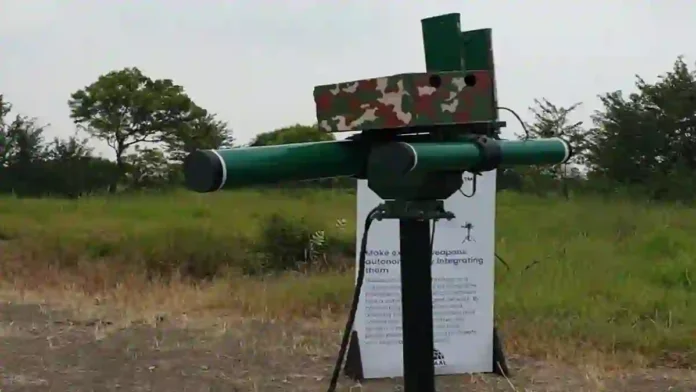Sources – AFI
The government is close to finalising anti-drone technology for deployment across borders, especially the International Border with Pakistan in Punjab and the Line of Control in Jammu and Kashmir.
“We are very near to finalising the anti-drone technology for deployment all along the border. Three types of trials are underway. We have to decide whether to deploy these independently or in combination. The deployment is estimated in six months,” top government sources said with drone incursions across the border on the rise. Only in December last year, the Border Security Force which guards the International Border said it had shot down 100 Pakistani drones engaged in smuggling narcotics, arms and ammunition into India through 2023.
Previously, the BSF reported 268 drone sightings in 2022 as against 49 in 2020 and 109 in 2021. The government is conscious of the rapid emergence of drones as Pakistan’s preferred tool in the border conflict with India.
Read- WHAT IS AKASH MISSILE SYSTEM AND WHY IS IT CONSIDERED TO BE INDIA’S IRON DOME
“Memories of the June 27, 2021, drone attack on the Indian Air Force Station in Jammu are still fresh when two low-intensity explosions were reported. One caused minor damage to the roof of the building and the other exploded in the open. Low-flying drones were used in the attack to drop two improvised explosive devices.
“Drone sightings in Punjab are also on the rise and we can increasingly observe the potential of drones for attacks in military and civilian areas as well as their use in carrying narcotics, small arms and fake currency. All this warrants anti-drone technology deployment,” official sources said, adding that counter-unmanned aircraft systems (C-UAS) technology can neutralise drones in two ways — by blocking communication lines or by downing the drone itself.
In the wake of the Israel-Hamas war, drone attacks led by Iran-backed Houthi rebels in the Red Sea have also escalated. Only a week ago, drone attacks damaged a commercial merchant ship in the Arabian Sea leading to Defence Minister Rajnath Singh’s dare that India would find the perpetrators of the attack from the depths of the sea.




